Our Services
Applied Behavior Analysis (ABA)
Compassionate, Play-Based ABA Therapy
We recognize that every child is unique and are committed to offering personalized ABA therapy that meets each child’s specific needs. Our therapy is designed to support children in becoming their best selves, fostering meaningful relationships, and gaining independence at home and within the community.
Read More
Our approach is grounded in a neurodiversity-affirming perspective, celebrating the distinct personality of each child. Our clinicians work closely with families to develop personalized treatment plans that align with each child’s learning style. Our dedicated team of ABA therapists is highly trained in various proven methods, including the Early Start Denver Model (ESDM), focusing on engaging children through play-based therapy.

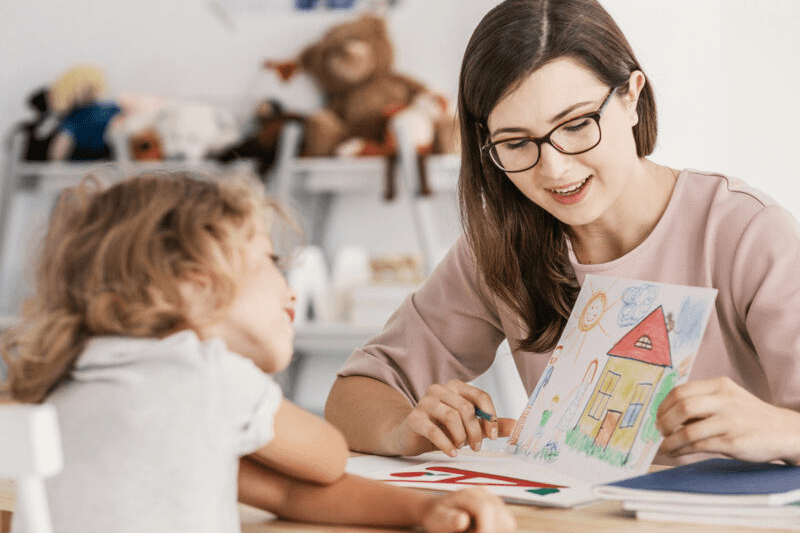
Benefits of ABA Therapy
Enhanced Social Skills
Reduction of Learning Barriers
Promoting Independence
Supporting Smooth Transitions
Developing Essential Skills
Embracing Neurodiversity
Collaborative Care Team
Play-Based Learning Opportunities
Focusing on Strengths
Creating a Supportive Environment
Empowering Caregivers
What is ABA Therapy for Autism?
ABA therapy is a personalized and evidence-based approach designed to address the specific needs of children on the autism spectrum. At Hope To Inspire ABA, we develop individualized care plans considering how each child interacts with their environment. Our goal is to provide effective strategies to help children navigate their world more successfully.
Read More
ABA therapy enhances skill acquisition and reduces challenging behaviors through targeted interventions. We address various skills, including language development, social interactions, cognitive abilities, and play. Our primary objective is to empower each child to achieve personal independence and autonomy.
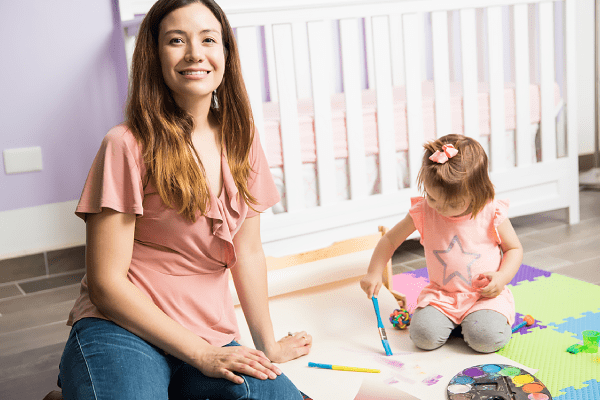
Play-Based Therapy Using the ESDM
Children learn best through play, and at Hope To Inspire ABA, we incorporate the Early Start Denver Model (ESDM) for our youngest learners. Through engaging, developmentally appropriate activities, this comprehensive, play-based approach targets critical areas such as language, social-emotional skills, personal independence, and cognitive development.
Read More
The ESDM can be conducted across different settings and involves a collaborative team of ABA therapists, speech pathologists, occupational therapists, psychologists, and caregivers. This approach ensures that therapy is integrated into various aspects of the child’s life for optimal effectiveness.
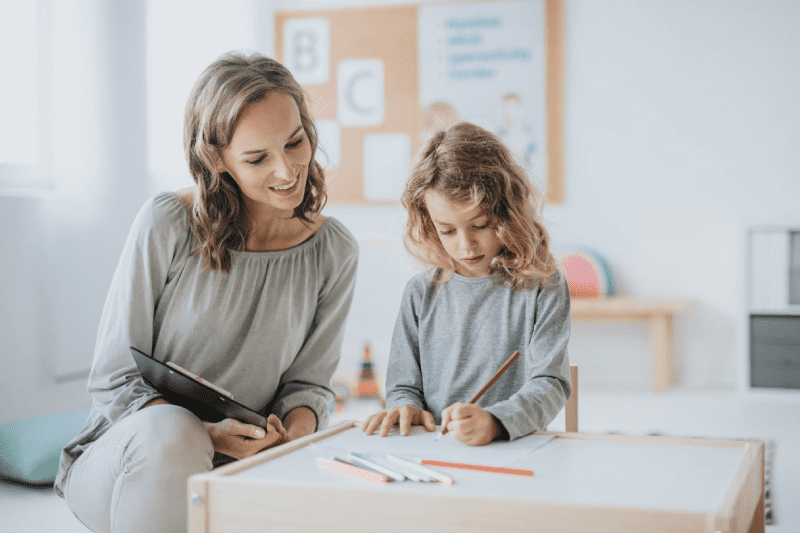
ABA Therapy Principles
Empowering Unique Strengths
We focus on nurturing each child’s inherent strengths to help them reach their full potential, tailoring learning experiences to overcome social and educational challenges.
Play as a Pathway to Learning
Collaborative Learning Approach
In-Home ABA Therapy
Personalized ABA Therapy in the Comfort of Your Home
At Hope To Inspire ABA, we understand that each child with autism is unique, and so are their needs. Our In-Home ABA Therapy program is designed to provide personalized, evidence-based therapy within the comfort and familiarity of your own home. This approach ensures that your child receives the support they need in an environment where they feel safe and secure.
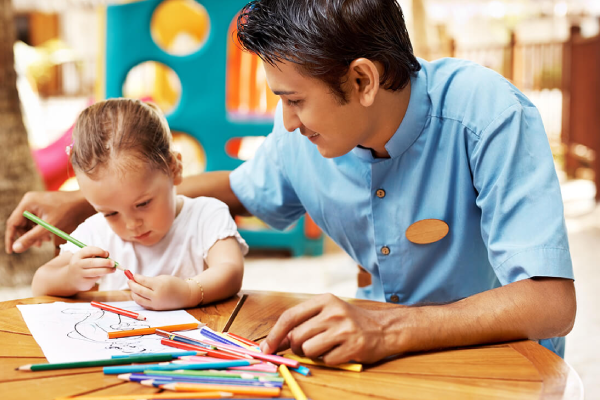

Why Choose In-Home ABA Therapy?
1. Familiar Environment
Comfort: Children are more relaxed and responsive in their own homes, which can enhance the effectiveness of therapy.
Relevance: Therapy sessions are tailored to your child’s natural environment, making it easier to generalize skills to daily life.
2. Family Involvement
Collaboration: Parents and caregivers are closely involved in the therapy process, ensuring consistency and reinforcing skills outside sessions.
Training: Ongoing caregiver training helps families support their child’s development and manage behaviors effectively.
3. Convenience
Flexibility: In-home therapy eliminates travel, making fitting therapy sessions into your family’s schedule easier.
Consistency: Regular sessions at home can lead to more consistent progress and quicker achievement of goals.
Our In-Home Therapy Services
1. Initial Assessment
Comprehensive Evaluation: A Board Certified Behavior Analyst (BCBA) will thoroughly assess your child’s strengths, challenges, and needs.
Individualized Plan: We create a customized ABA therapy plan tailored to your child’s specific goals based on the assessment.
2. One-on-One Therapy
Personalized Sessions: Our trained Behavior Technicians or Registered Behavior Technicians provide one-on-one therapy sessions, focusing on skill acquisition, behavior management, and developmental milestones.
Engaging Activities: Using play-based and structured activities, we make learning enjoyable and effective.
3. Ongoing Monitoring and Adjustments
Progress Tracking: Regular monitoring and data collection ensure that your child is progressing toward their goals.
Plan Adjustments: The BCBA regularly reviews and adjusts the therapy plan based on your child’s progress and evolving needs.
4. Caregiver Training
Empowering Families: We provide hands-on training and support for parents and caregivers, helping you to implement ABA strategies and reinforce positive behaviors at home.
Continuous Support: Our team is always available to answer questions, provide guidance, and support your family throughout therapy.

Benefits of In-Home ABA Therapy
Positive Outcomes
Skill Generalization
Learning occurs in the natural environment, promoting the generalization of skills to everyday situations.
Family Empowerment
Tailored Interventions
Get Started with In-Home ABA Therapy
Social Skills in ABA Therapy

Our Social Skills Programs
1. Social Skills Groups
Purpose: To create opportunities for children to practice and improve their social interactions in a structured group setting.
Activities: Engaging in activities that promote turn-taking, sharing, and cooperative play.
Focus: Enhancing skills such as initiating conversations, maintaining eye contact, and understanding social cues.
2. One-on-One Social Skills Training
Purpose: To provide individualized support tailored to each child’s social needs and goals.
Approach: Focused sessions that target particular areas of difficulty, such as understanding emotions, responding appropriately in social situations, and developing friendships.
Techniques: Utilizing role-playing, modeling, and reinforcement to practice and internalize social behaviors.
3. Social Skills Integration
Purpose: To help children generalize learned social skills to everyday settings and interactions.
Approach: Working with families, schools, and community settings to ensure that social skills are effectively applied in real-life scenarios.
Support: Providing guidance and strategies for parents and caregivers to reinforce social skills at home and in the community.
4. Group-Based Social Skills Training
Purpose: To facilitate peer interactions and social learning in a group environment.
Activities: Structured group sessions focusing on group dynamics, cooperative play, and social problem-solving.
Benefits: Enhancing the ability to work with others, build friendships, and navigate social situations.
Potty Training
Potty Training with ABA Therapy
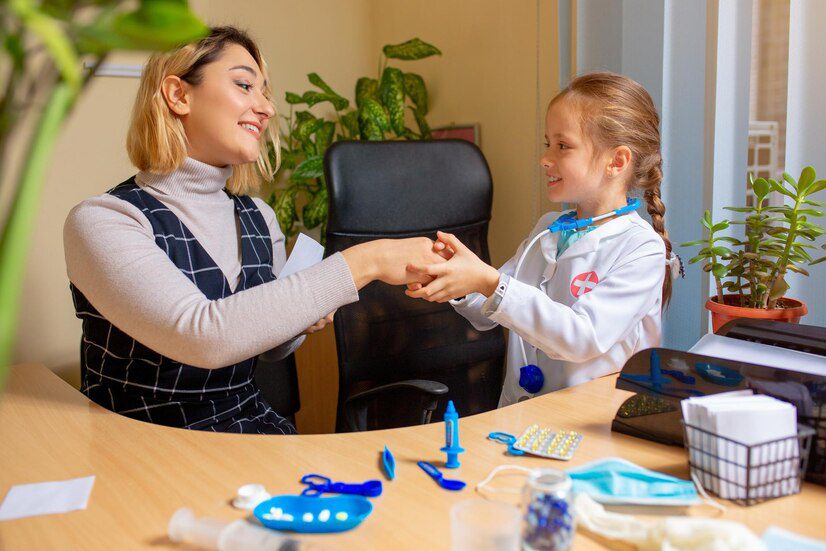
Our Potty Training Program
1. Comprehensive Assessment
Purpose: To evaluate each child’s readiness for potty training and identify any specific challenges or needs.
Components: Assessing developmental milestones, current behaviors, and family routines to create a tailored potty training plan.
2. Individualized Training Plan
Custom Approach: Developing a personalized potty training plan based on the assessment results, focusing on the child’s unique learning style and needs.
Strategies: Implementing ABA techniques such as positive reinforcement, visual supports, and structured routines to promote successful toileting habits.
3. Step-by-Step Instruction
Support: Providing guidance on establishing consistent routines, recognizing signs of readiness, and addressing any challenges that arise during the process.
4. Positive Reinforcement
Motivation: Using positive reinforcement to encourage desired behaviors, such as using the toilet and following routines.
Rewards: Offering rewards and praise to motivate and reinforce successful potty training efforts.
5. Family Involvement
Training: Educating and supporting parents and caregivers on effective potty training techniques and strategies.
Collaboration: Working closely with families to ensure consistency and address any concerns or questions throughout the training process.
Benefits of ABA-Based Potty Training
Successful Toileting: Achieving successful potty training with a structured, supportive approach.
Increased Independence: Enhancing the child’s ability to manage toileting independently.
Reduced Stress: Minimizing stress and frustration for both the child and family through a clear, manageable process.
Confidence Building: Boosting the child’s confidence and self-esteem with successful toileting experiences.
Behavior Plans & Parent Training
Why Do We Need
Behavior plans are essential for managing and improving specific behaviors in children with autism. Using the principles of Applied Behavior Analysis (ABA), we develop customized behavior plans that target challenging behaviors, enhance desired behaviors, and promote overall well-being.
Our Behavior Plans
1. Comprehensive Assessment
Purpose: To thoroughly understand each child’s behavior, triggers, and environmental factors.
Components: Detailed observations, interviews with caregivers, and analysis of behavior patterns to inform the development of a targeted behavior plan.
2. Customized Behavior Plan
Personalized Approach: Creating an individualized behavior plan based on assessment findings, focusing on specific goals and interventions tailored to the child’s needs.
Strategies: Implementing ABA techniques such as positive reinforcement, behavior modification, and skill development to address and improve behavior.
3. Ongoing Monitoring and Adjustments
Progress Tracking: Regularly monitoring the child’s progress and making necessary adjustments to the behavior plan to ensure continued effectiveness.
Feedback: Providing updates and recommendations based on the child’s progress and any new developments.
Parent Training
1. Training Workshops
Purpose: To educate parents on the principles of ABA and how to apply them at home.
Content: Workshops cover topics such as behavior management, reinforcement techniques, and implementing behavior plans.
2. Individual Coaching
Personalized Support: Offering one-on-one coaching sessions to address specific concerns and provide tailored guidance.
Strategies: Teaching parents how to effectively implement behavior plans, manage challenging behaviors, and reinforce positive behaviors.
3. Resources and Support
Tools: Providing resources such as visual aids, behavior charts, and practical tips for daily routines.
Ongoing Support: Offering continuous support and consultation to address any questions or challenges that arise.

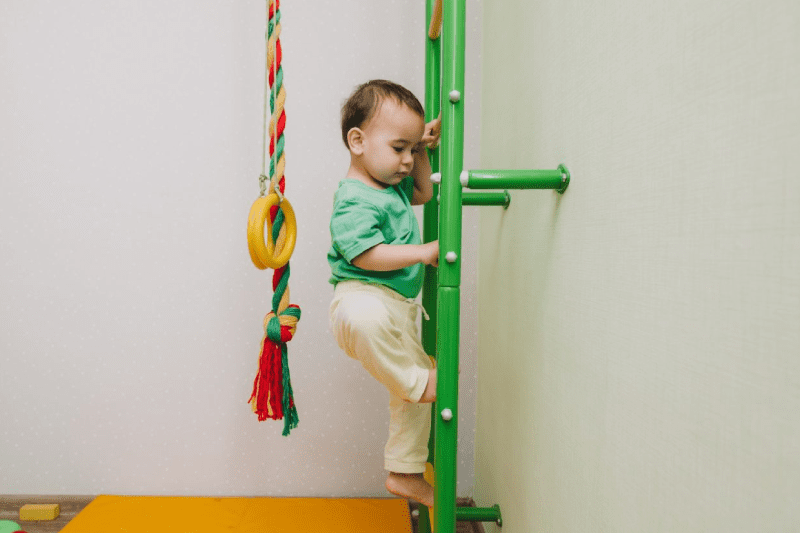
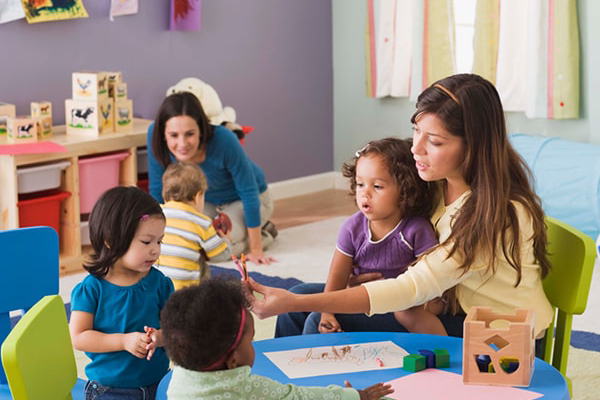
Social Skills